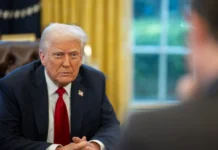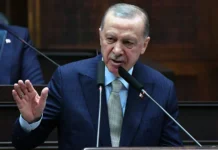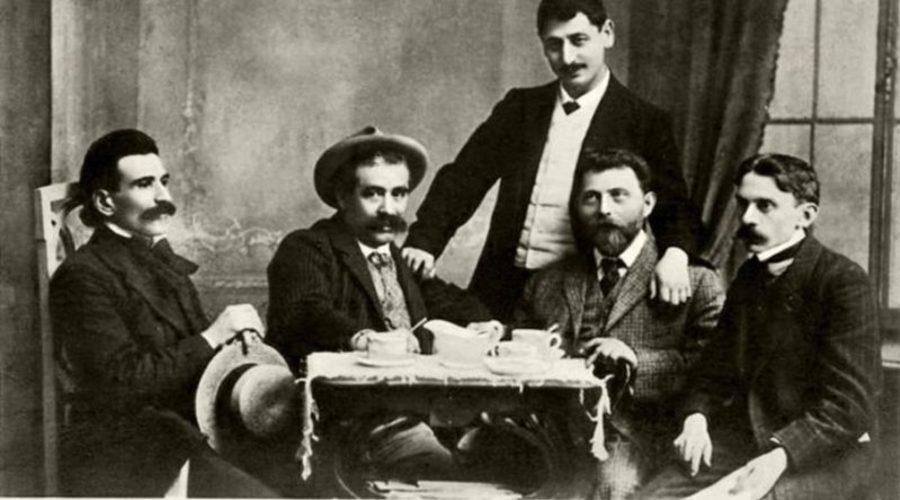The location of this year’s event is particularly noteworthy, as Czernowitz is the home of the very first international Yiddish Language Conference, convened 110 years ago as the first non-party confab to deal with the role of Yiddish in Jewish life. That forum proclaimed Yiddish a modern Jewish language with a developing high culture.
The celebration this week was convened at the initiative of the WJC’s International Yiddish Center in Vilnius, which since its inception in 2014 has provided dozens of courses to more than 6,500 students around the world.
Ahead of the conference, WJC CEO and Executive Vice President Robert Singer said: “The World Jewish Congress is committed to the preservation and critical study of the Yiddish language and culture and sees great value in reflecting on its core roots in the development of modern Jewish history. Just 70 years ago, we witnessed a severe decline in the place of Yiddish within Jewish society, and many believed that the language and culture died along with the six million victims of the Holocaust. It is encouraging and invigorating to be part of the renaissance of Yiddish, and to see it expand into the circles of the next generation of Jewish leaders.
“We must do everything possible to remember the millions of Yiddish-speaking Jews, to preserve their language and culture, to transfer their spiritual treasures to future generations, and introduce these values into all systems of Jewish formal and informal education around the world,” Singer said.
Yiddish has not yet said it’s last word | op-ed by WJC CEO Robert Singer
The roster of renowned experts to speak at this week’s conference include Prof. Wolf Moskovich (Professor Emeritus, formerly chairperson of the Department of Russian and Slavic Studies at the Hebrew University of Jerusalem); Prof. David Bunis (Jewish languages researcher at the Hebrew University of Jerusalem); Prof. Mikhail Chlenov (leading Russian-Jewish ethnographer, Prof. Valery Dymshitz (senior Yiddish researcher and educator at the St. Petersburg University, Russia); Prof. Petro Rykhlo (a scholar and literary critic from the Chernivtsi University); Dr. Mordechay Yushkovsky (the academic director of the World Jewish Congress International Yiddish Center); Dr. Hirshe-Dovid Kats (renowned American-Lithuanian scholar, author and educator, specializing in Yiddish language and literature); Dr. Moyshe Lemster (Moldovan-Israeli Yiddish poet); Daniel Galay (composer, Yiddish writer, and head of Leyvik Hoyz Yiddish Cultural Center in Tel Aviv). Numerous Yiddish researchers and activists from Ukraine, Israel and other countries will also be in attendance.
The conference is being co-organized and sponsored under the partnership of a number of organizations and individuals, including the World Jewish Congress and its International Yiddish Center, the Hebrew University of Jerusalem, the Center for the Study of Culture and History of Eastern European Jewry at the National University “Kyiv-Mohyla Academy” in Kiev, the Yuri Fedkovitch State University in Czernowitz, the Czernowitz Municipality, the Museum of Culture and History of Bukovina Jewry, the European-Asian Jewish Congress, the Va’ad (Federation of Jewish Communities and Organizations of Ukraine), and the Ukrainian-Jewish Encounter.
The conference program includes, inter alia, a look at the development of Yiddish literature, theater, cinema and journalism between 1908 and 2018, trends and changes in the Yiddish language during the last century, Yiddish during and after the Holocaust, Yiddish and Hebrew in Israel, Yiddish in Hasidic circles, Yiddish and computer linguistics, and Yiddish as a living language in the 21st century. Yiddish and contemporary media.
The WJC’s International Yiddish Culture Center was established in 2014, under the leadership of WJC President Ronald S Lauder and a prominent Jewish philanthropist, and has provided Yiddish instruction in dozens of countries to thousands of teachers, students, community workers, youth leaders, and researchers of Jewish culture. Through this program, participants are able to touch on the wealth of the Yiddish language and its literature, folklore, music, theater, cinema, and humor.


























